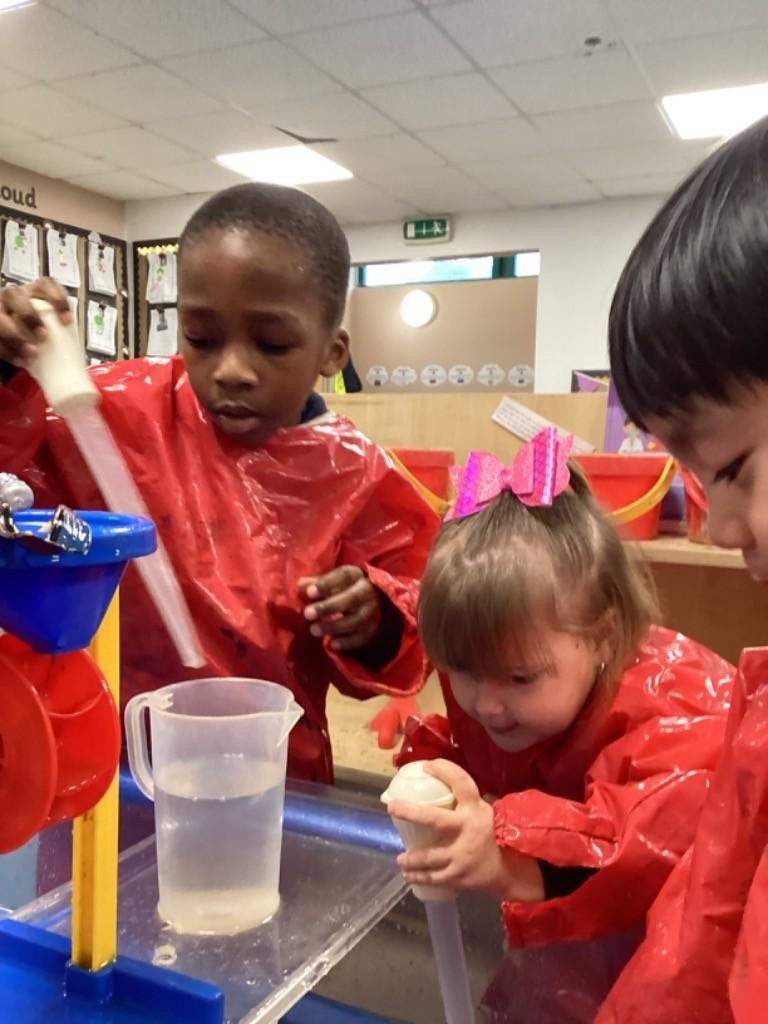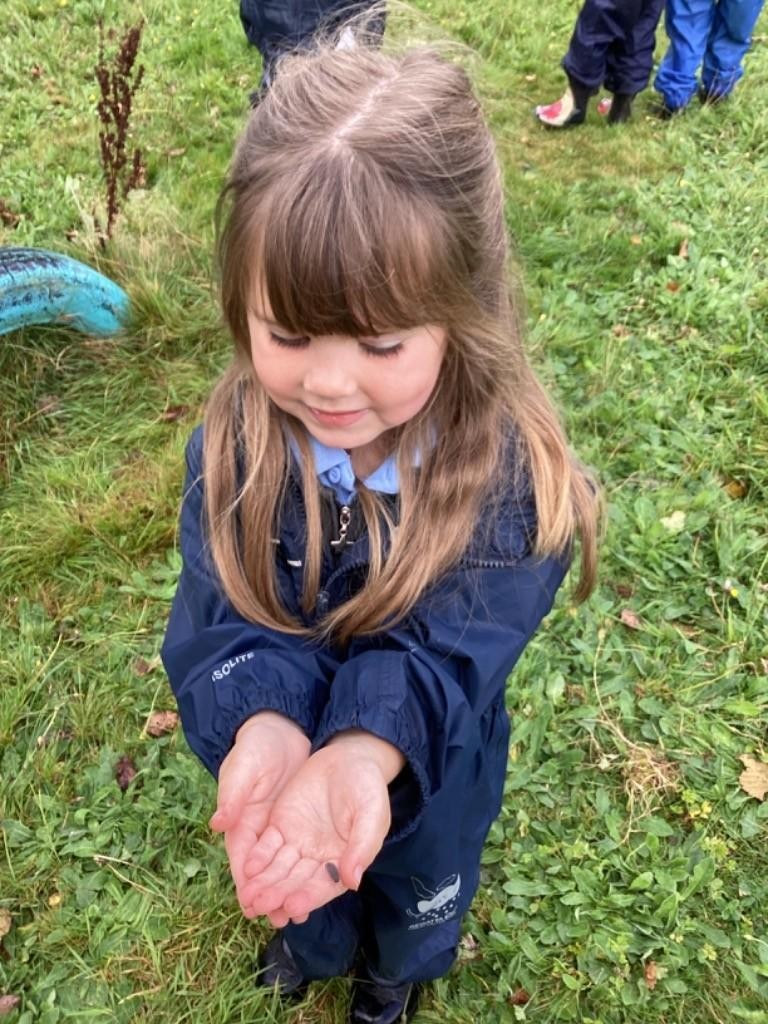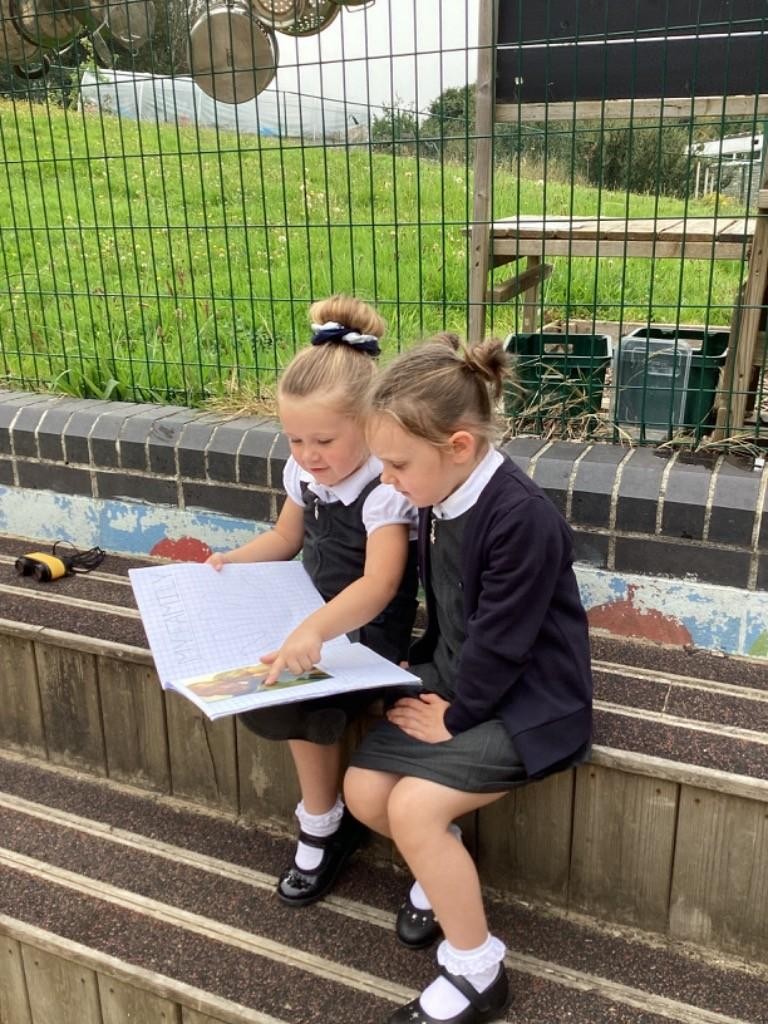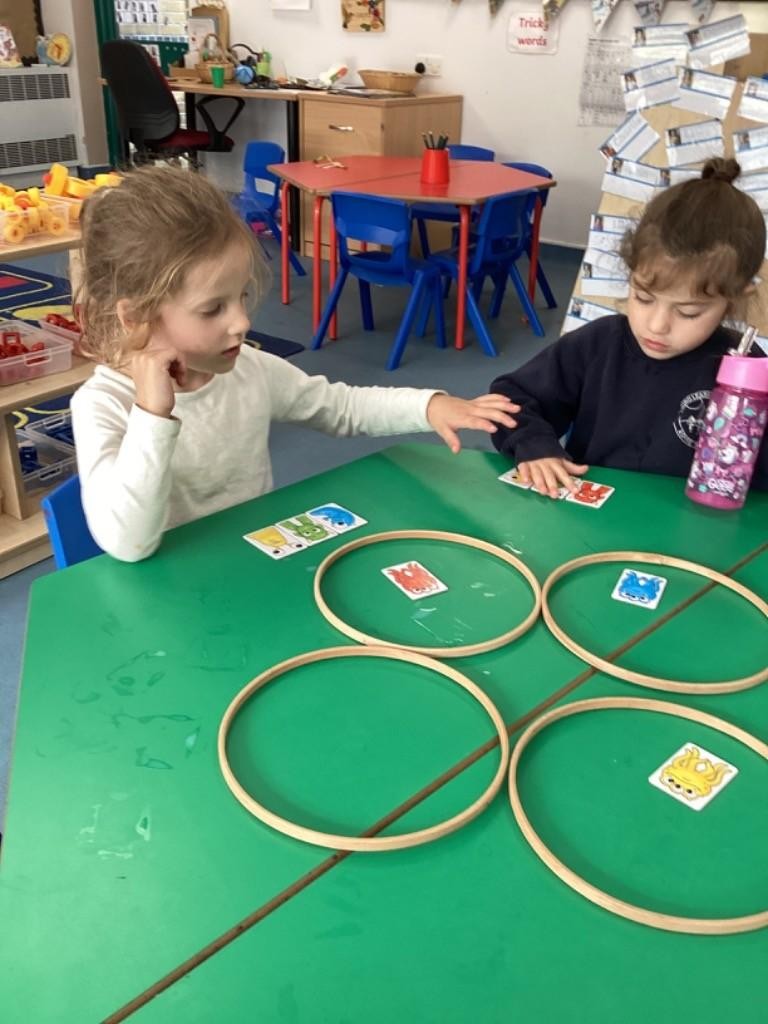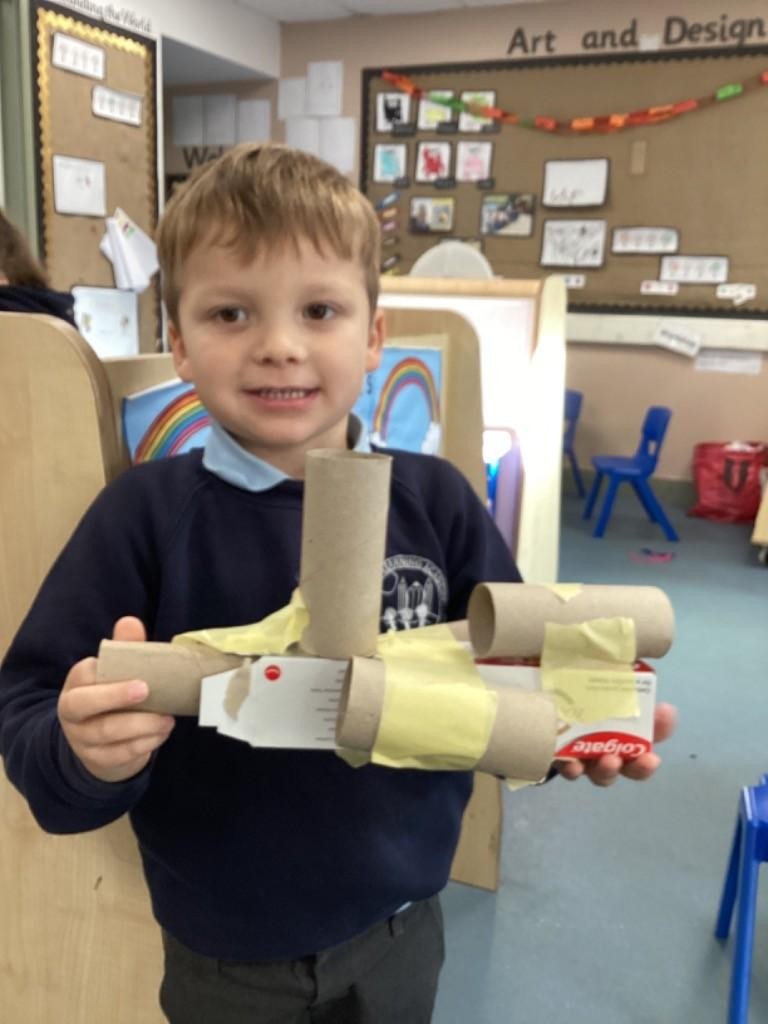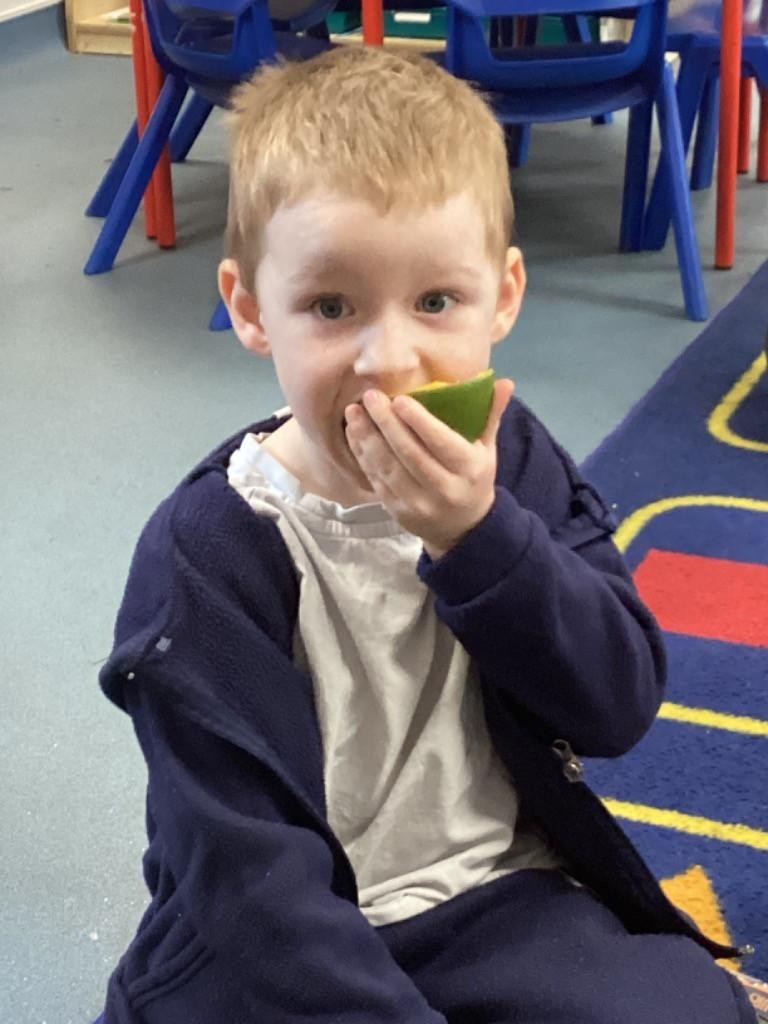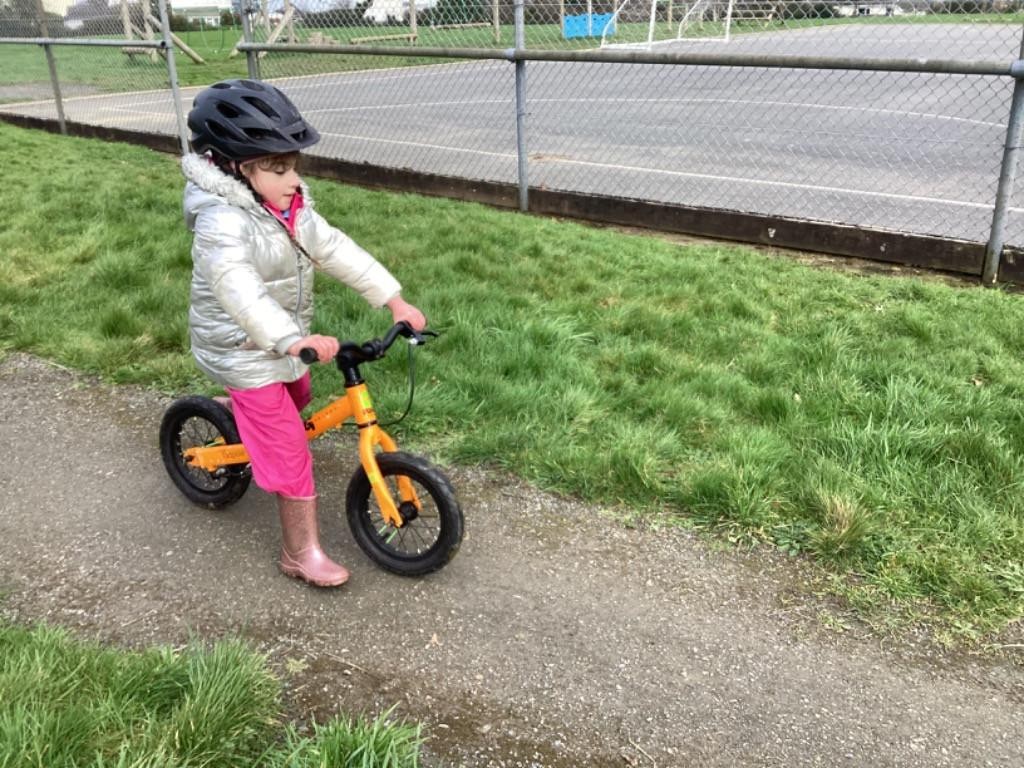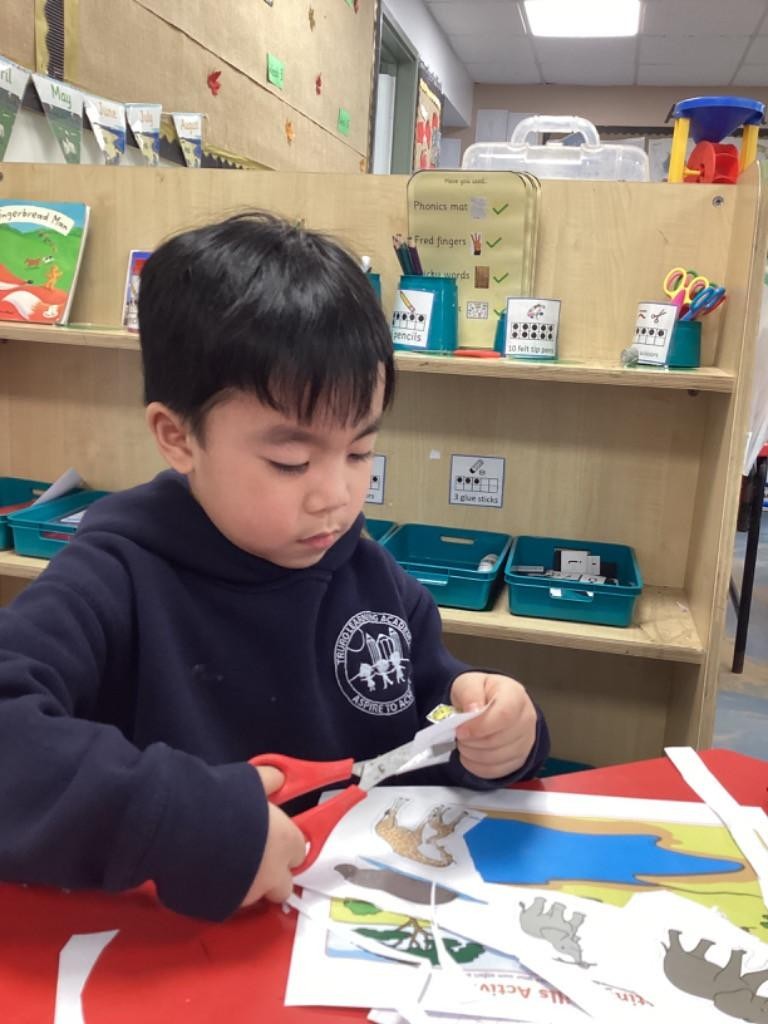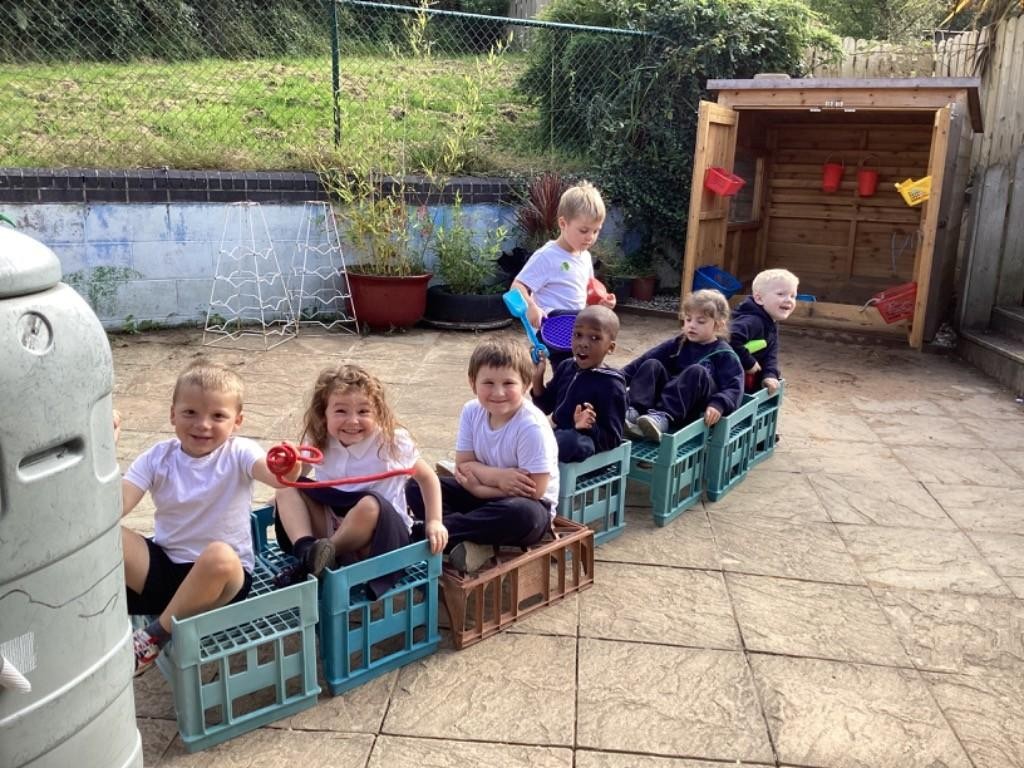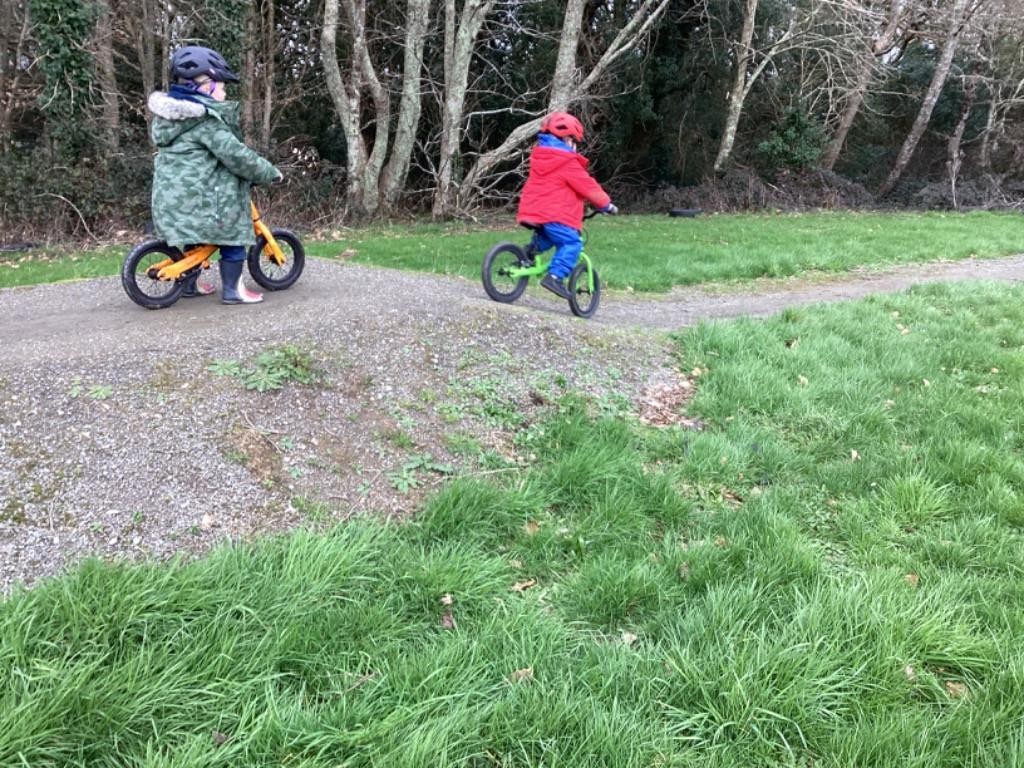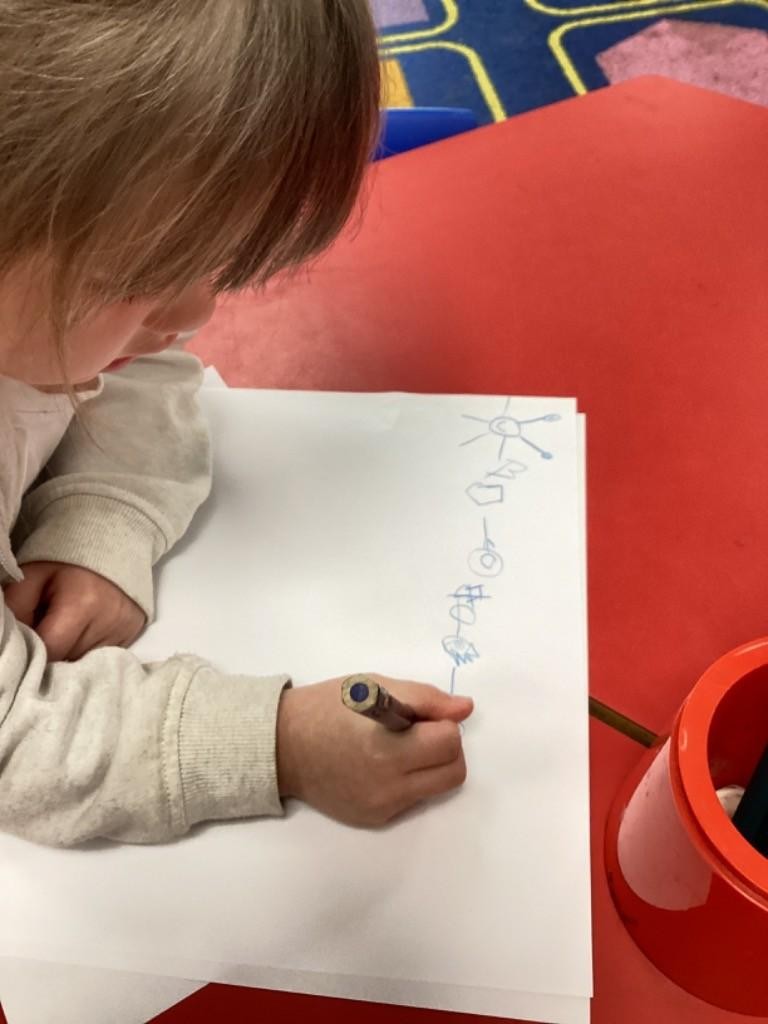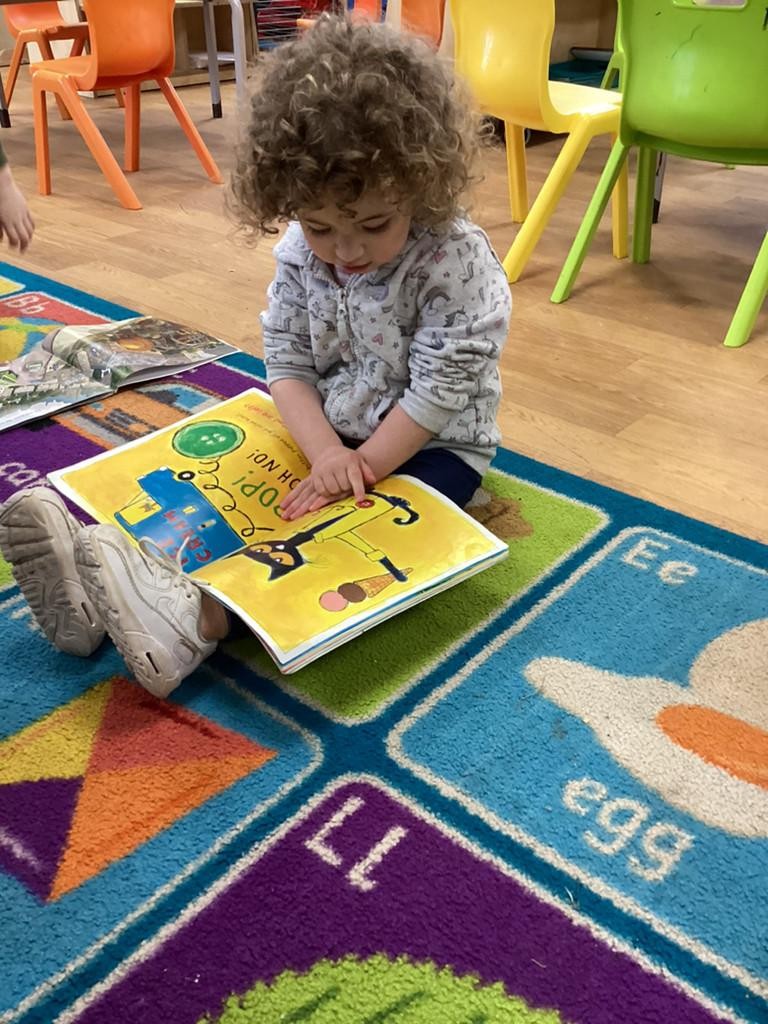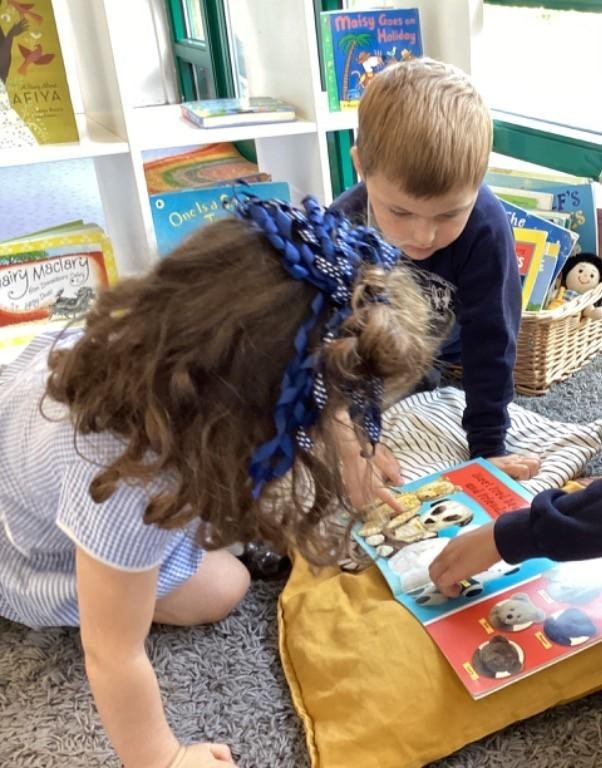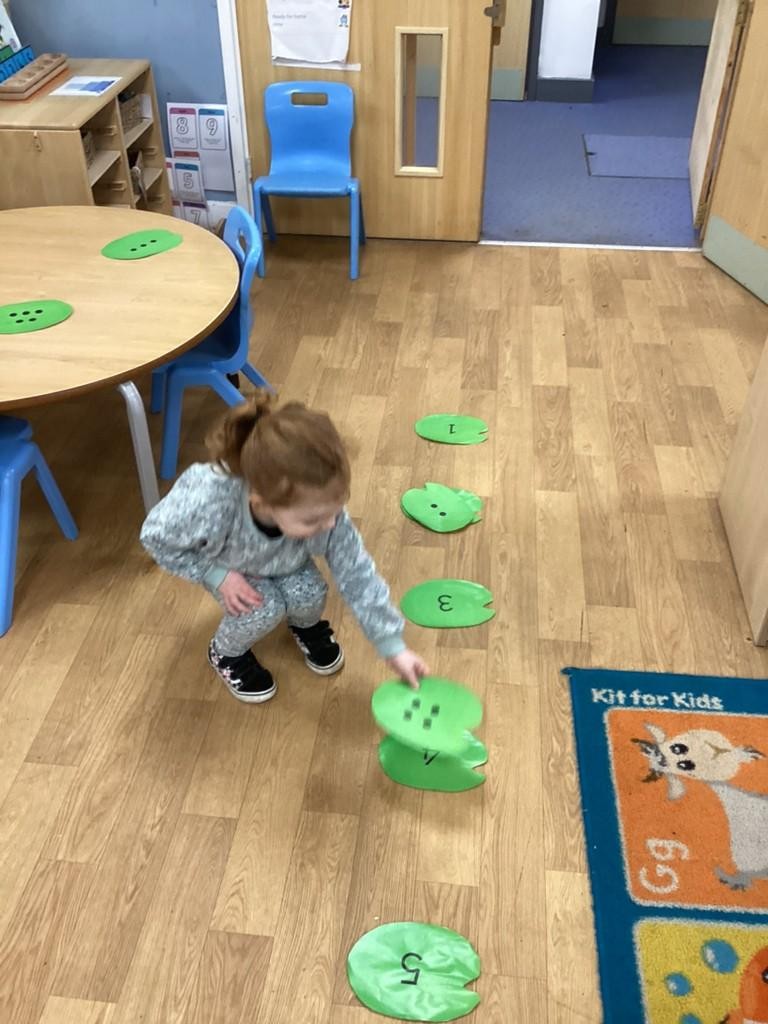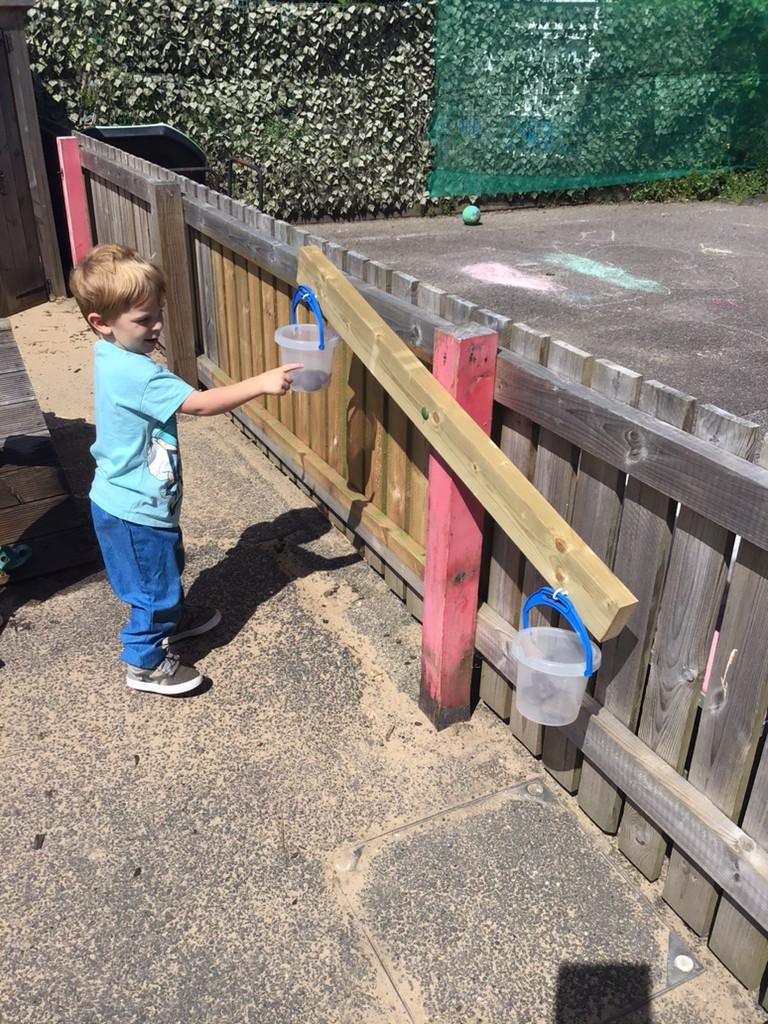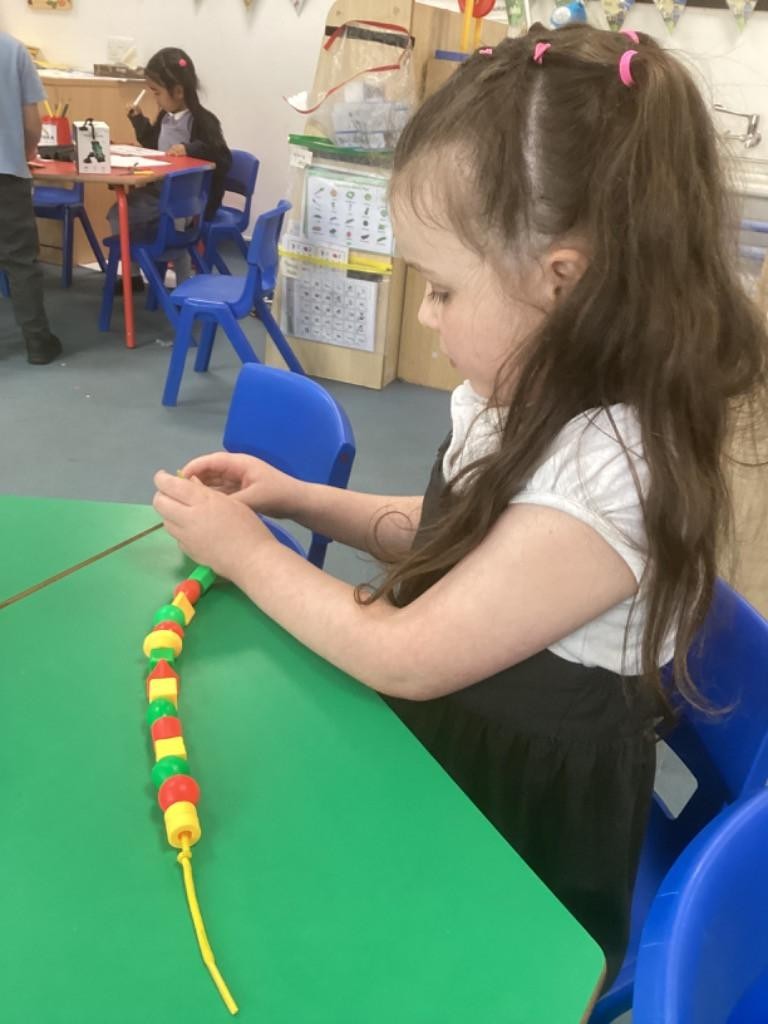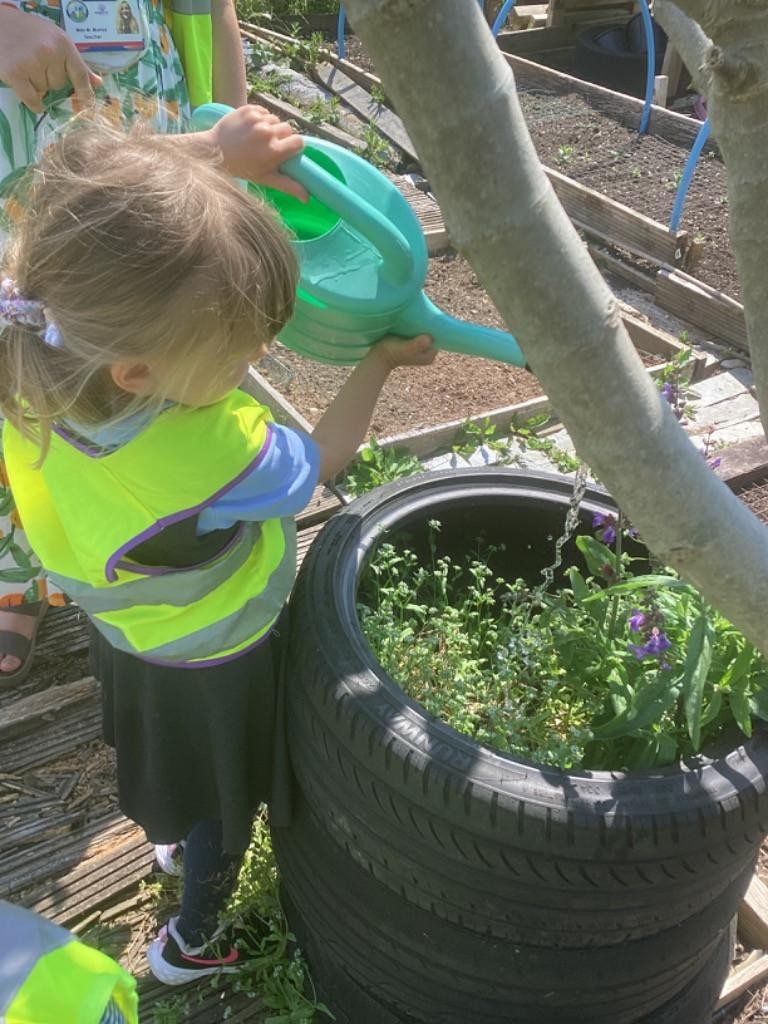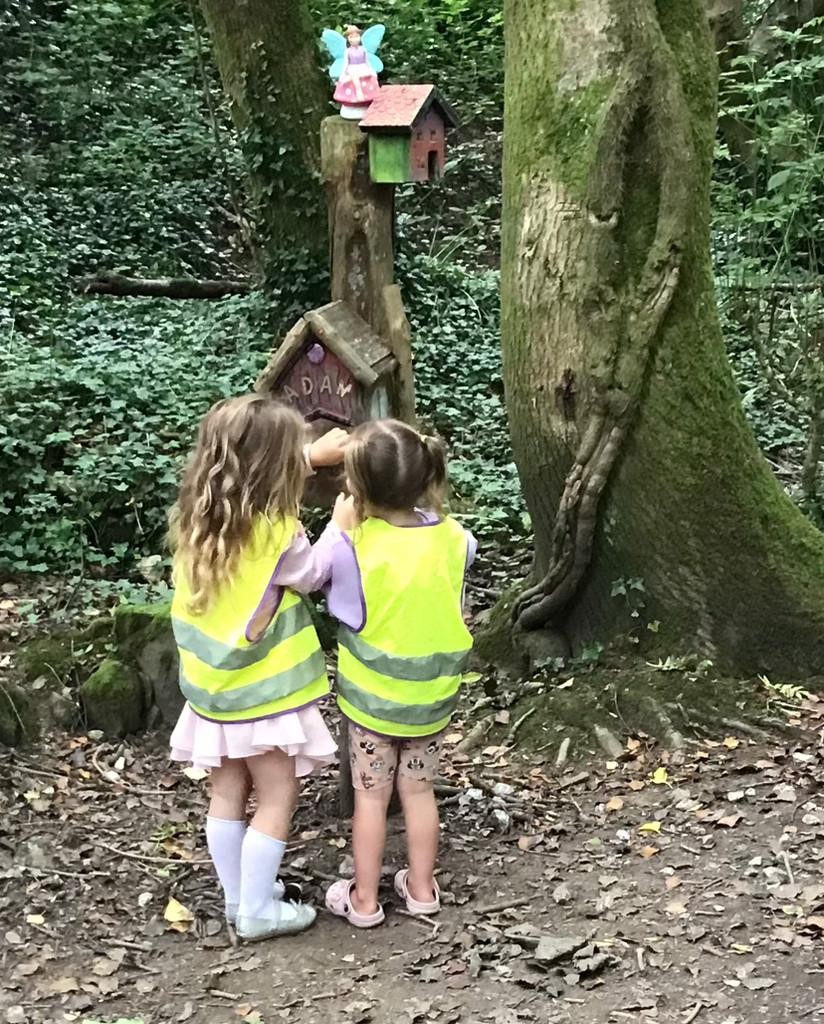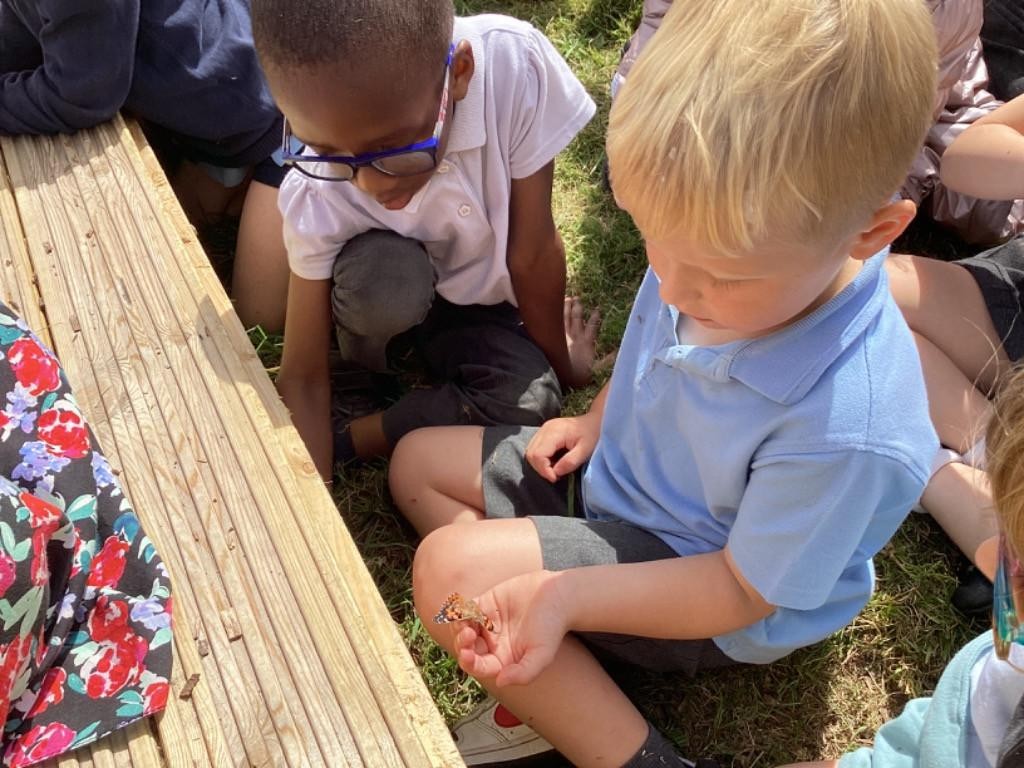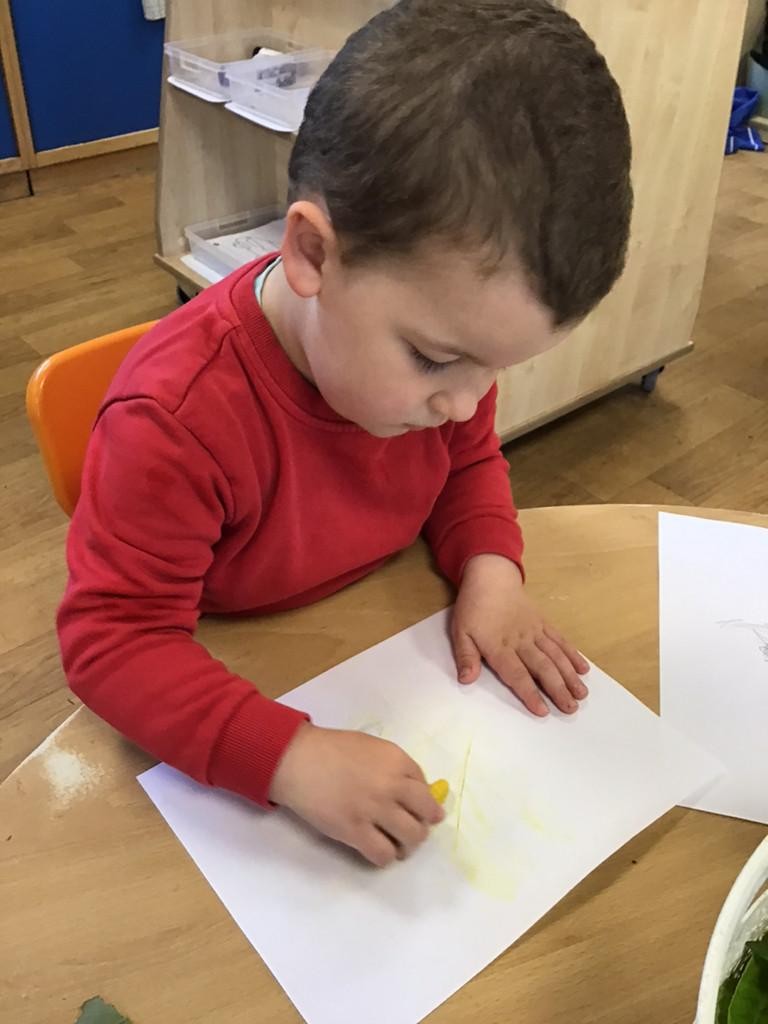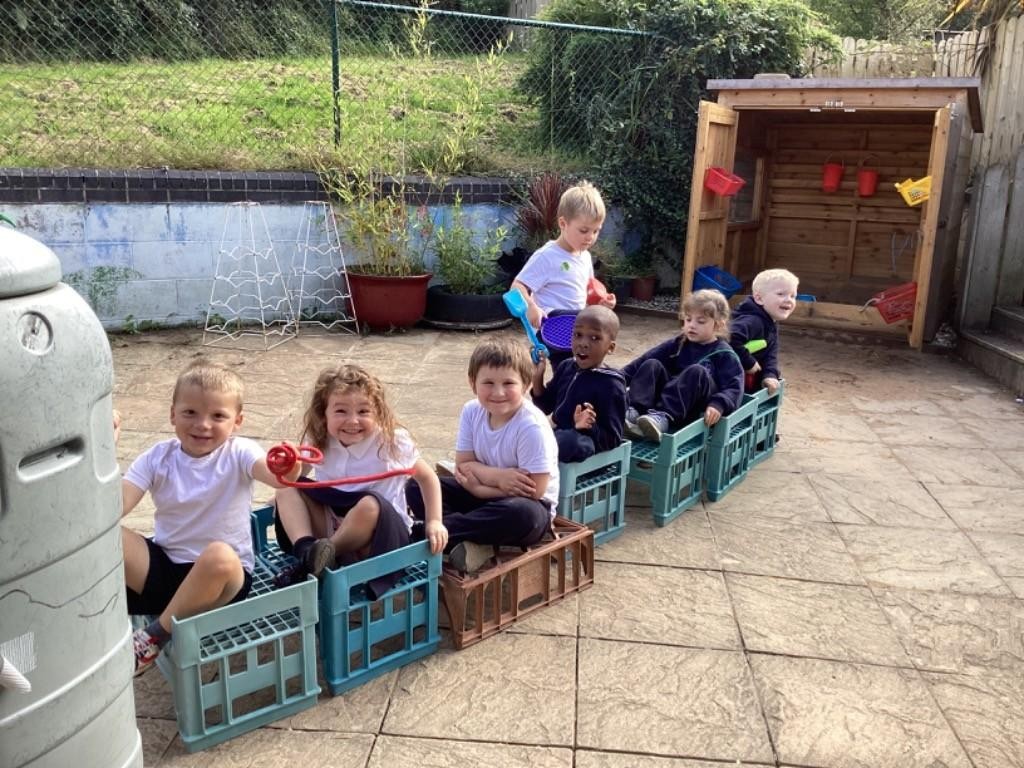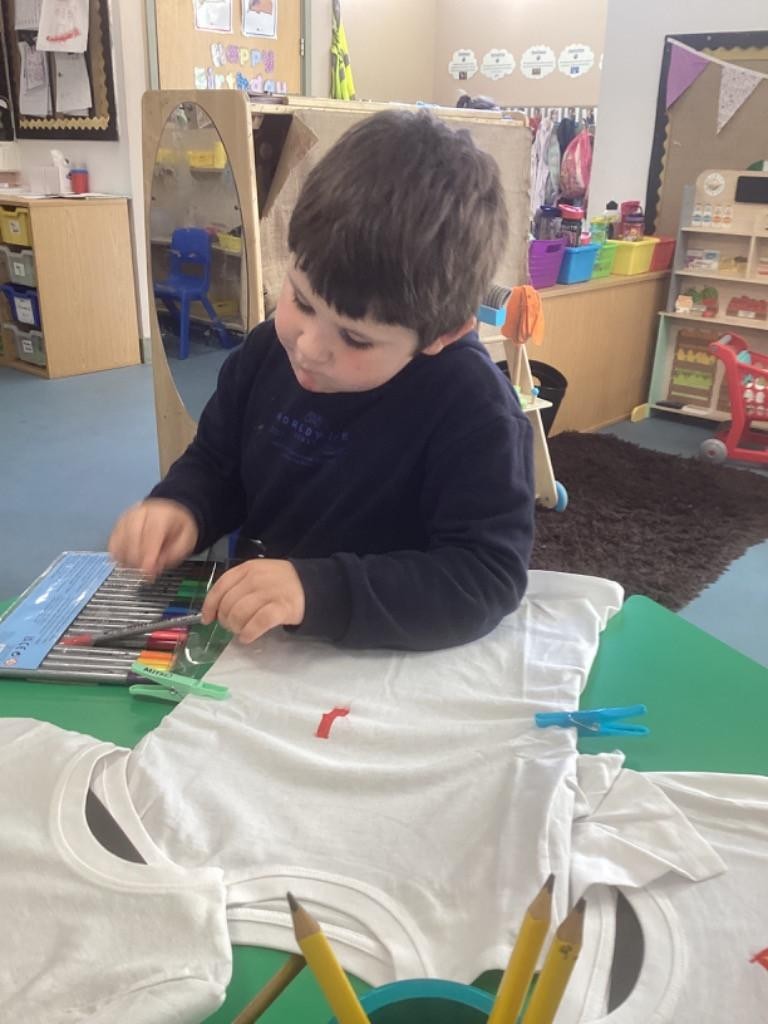We develop children’s vocabulary and communication skills through high-quality interactions every day. We use the ShREC approach (EEF) as a basis on which our interactions are modelled. Practitioners use their professional judgement to carefully target their interactions such that vocabulary and communication gaps between pupils are minimized as much as possible. Practitioners model careful listening to children daily.
Children read and discuss a wide variety of stories each week, including weekly key texts for each age group, with carefully selected focus vocabulary to extend our pupil’s vocabulary further. Practitioners re-read stories regularly to build familiarity and enjoyment, resulting in children knowing many stories by heart by the time they leave EYFS. Children sing songs daily within the setting, as well as learning weekly focus rhymes to ensure all of our children know a broad range of songs and rhymes by the end of their EYFS journey. Our focus texts and rhymes are mapped out along with key maths texts and recommended reads in our reading spine below.
Children’s communication and language development is screened using the Wellcomm toolkit within their first 6 weeks at our setting. Children not making expected progress in communication and language for their age receive twice weekly communication and language interventions through the Wellcomm toolkit. Practitioners are also mindful of children’s targets on the Wellcomm scheme in their interactions with these children.
Lead practitioners plan opportunities to teach children explicitly about healthy and balanced lifestyles, as well as modelling this through a carefully thought-out daily routine, for example offering fruit at snack time and encouraging regular physical activity within the setting.
We develop our children’s physical development through the careful planning of our EYFS environments, which ensures that children have access to a range of large- and small-scale resources, as well as continual access to a wide range of tools. Practitioners use their professional judgement to plan enhancements and provocations targeted at furthering the physical development needs and interests of our children, as well as providing practice of fundamental skills. Our provision benefits from our own dedicated outdoor learning environment, as well as a dedicated field. This encourages our children to be physically active in their daily child-initiated learning within our continuous provision. Practitioners encourage children to be active and play games throughout their child-initiated play. Children also receive explicit instruction on tool use and pencil grip from key practitioners, as well as modelling and instruction of fundamental physical skills.
Nursery-aged children experience direct instruction in weekly sessions from the ‘Healthy Movers’ scheme designed by the Youth Sport Trust, to support their physical development and promote enjoyment in physical activity right from the start of their EYFS journey. Children in the reception year access direct instruction through our bespoke TLA P.E. curriculum, designed to teach children the fundamental skills required to access a range of physical activity and sport. Children in the Early Years also have access to a set of balance bikes which they use weekly on our school mountain bike track which we have constant access to on site. Children learn the fundamentals of riding a bike throughout the Early Years, enabling them to progress onto our set of larger bikes in later year groups.

